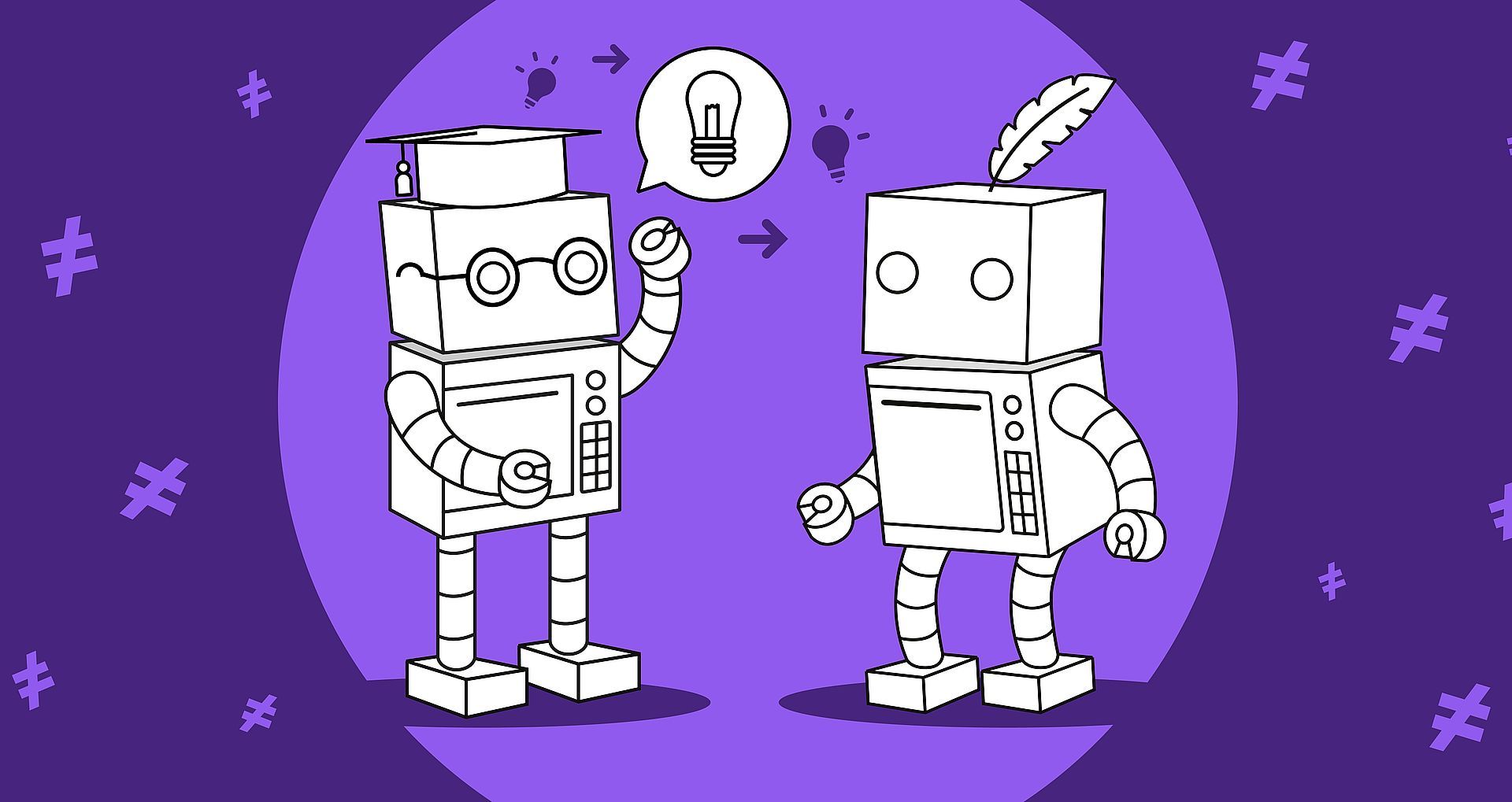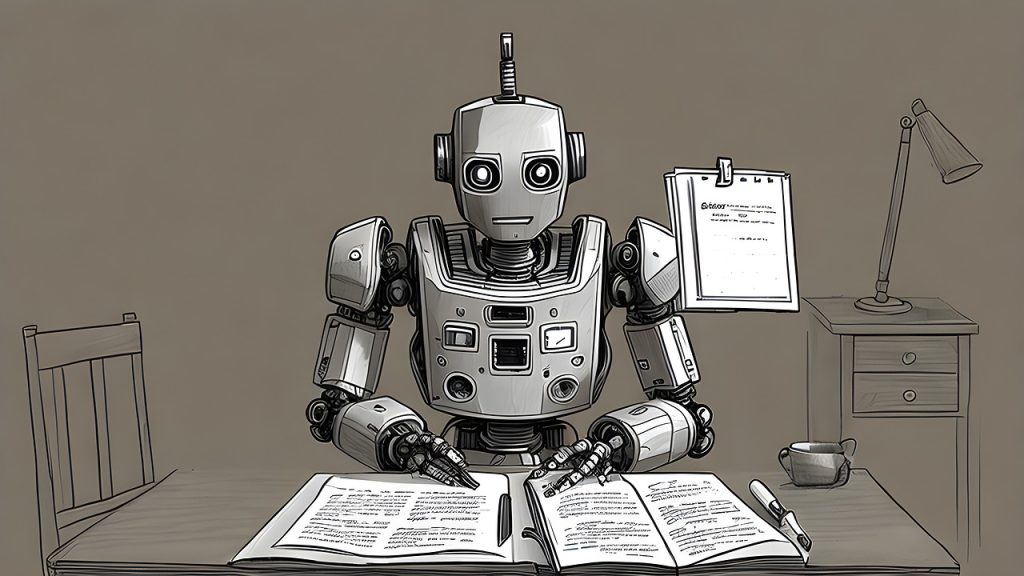
QuillBot is a widely used AI-powered paraphrasing tool favored by students, digital marketers, and professionals globally. It is renowned for its ability to rewrite content in a high-quality, plagiarism-free manner, assisting users in enhancing the clarity, coherence, and originality of their written content. QuillBot offers multiple writing modes, including Standard and Fluency for free users, and additional styles such as Formal and Academic for premium users. In addition to paraphrasing, QuillBot includes a grammar checker, summarizer, and plagiarism detection tool, making it a comprehensive choice for improving content quality.
Canvas AI is an AI tool integrated within Canvas, a Learning Management System (LMS) widely adopted by educational institutions. Unlike QuillBot, which focuses on enhancing and refining written content, Canvas AI aims to support educational processes and uphold academic integrity. It integrates third-party tools like Turnitin for plagiarism detection and uses AI to personalize learning experiences, adapt content to individual student needs, and provide real-time feedback. However, Canvas AI lacks the built-in capabilities for generating or paraphrasing content like QuillBot.
QuillBot vs. Canvas AI – Primary Use Cases
– QuillBot is primarily designed for content creation, rewriting, and improving textual quality. It is particularly useful for users who need to paraphrase content, check grammar, or detect plagiarism in their writing.
– Canvas AI, in contrast, serves as a tool within an educational LMS to enhance learning experiences, detect plagiarism, and provide interactive educational modules. Its focus is on supporting teaching and maintaining academic integrity rather than content generation.
– QuillBot includes a built-in plagiarism checker in its premium version, which scans text against a vast database of sources to ensure originality.
– Canvas AI relies on integrations with third-party tools like Turnitin for plagiarism detection. It can flag similarities between submitted assignments and existing content but does not independently generate or paraphrase text.
– QuillBot provides a user-friendly interface with features that are easily accessible through web browsers. It also offers extensions for Chrome and Microsoft Word, as well as mobile apps.
– Canvas AI is accessed through the Canvas LMS, requiring institutional access. Its AI capabilities are embedded in course management and are mainly designed for use by educators and students within an academic setting.
– QuillBot excels in generating high-quality paraphrased content using advanced algorithms to maintain the original meaning while rephrasing the text.
– Canvas AI does not have a feature for generating content. Its AI functionalities are focused on educational support, such as adapting learning materials to students’ needs and detecting plagiarism.

Netus AI is another significant tool in this comparison. It surpasses both QuillBot and Canvas AI in several key areas:
– Advanced AI Detection: Netus AI offers cutting-edge plagiarism detection and content verification capabilities, combining the strengths of tools like Turnitin with advanced machine learning algorithms that can detect more sophisticated forms of cheating, including AI-generated text.
– Comprehensive Content Services: Unlike Canvas AI, which is limited to educational environments, and QuillBot, which focuses primarily on paraphrasing and plagiarism, Netus AI provides a broader range of services. It includes comprehensive writing support, detailed plagiarism reports, and suggestions for improving content originality and coherence.
– User Experience: Netus AI offers a streamlined user experience with easy integration across multiple platforms, making it accessible for both educational institutions and individual users.
Experts agree that the use of AI in academia is a double-edged sword. On one hand, tools like QuillBot can help students learn better writing practices and improve their language skills. On the other hand, the misuse of such tools can undermine academic integrity. Canvas AI’s integration with third-party tools for plagiarism detection underscores the growing need for robust systems to combat AI-assisted cheating. Meanwhile, Netus AI is praised for its comprehensive approach to both detecting AI-generated content and assisting with content creation.
The rise of AI tools like QuillBot, Canvas AI, and Netus AI presents both opportunities and challenges across various fields. While these tools offer significant advantages in terms of efficiency and accessibility, their ethical implications cannot be ignored. Institutions and individuals must navigate these tools carefully to ensure they are used appropriately and responsibly.
Educational institutions have long grappled with issues of academic integrity, and the advent of AI tools has added a new layer of complexity to this challenge. Tools like QuillBot can be extremely beneficial for students who need assistance in rephrasing their work to avoid unintentional plagiarism or improve their writing style. However, misuse of these tools, such as relying on them to generate entire essays, raises serious ethical concerns. It’s essential for educators to clearly communicate guidelines regarding the use of AI tools and educate students on how to use them ethically.

Canvas AI, while primarily focused on plagiarism detection and supporting educational outcomes, also highlights the need for robust policies on AI use. By integrating third-party plagiarism detection tools, Canvas AI helps maintain academic integrity but also requires institutions to consider the privacy and security implications of student data being processed by these tools.
Beyond academia, AI tools like QuillBot and Netus AI are increasingly being used in professional settings. Content creators, marketers, and researchers utilize these tools to enhance their writing efficiency, generate ideas, and ensure originality. Netus AI, with its advanced detection and writing support capabilities, has become a preferred choice for professionals who require reliable and comprehensive tools to assist in content creation and verification.
However, professionals must also be mindful of ethical considerations when using AI tools. Plagiarism in professional writing can damage reputations and have legal consequences. Ensuring that AI-generated content is properly reviewed and cited is crucial in maintaining the integrity of professional work.
As AI technology continues to evolve, the capabilities of tools like QuillBot, Canvas AI, and Netus AI will likely expand. We can expect to see more sophisticated algorithms that can better detect nuanced forms of plagiarism, including those generated by other AI systems. Additionally, there will likely be further integration of AI tools into educational and professional platforms, making these tools even more accessible and embedded in everyday workflows.
Future developments may include AI tools that assist in teaching students about academic integrity, providing interactive tutorials on proper citation practices and the ethical use of AI tools. Such advancements could further support educators and institutions in promoting ethical behavior and maintaining high standards of integrity.
Ultimately, the use of AI tools like QuillBot, Canvas AI, and Netus AI comes down to balancing the benefits they offer with the potential risks they pose. By setting clear guidelines and educating users on the ethical implications, both educators and professionals can leverage these tools to enhance productivity and creativity while maintaining integrity and trustworthiness.
As AI becomes increasingly integrated into daily life, it is crucial to approach these tools with a critical eye, recognizing their potential to both support and challenge the standards of academic and professional environments.
Looking ahead, the development of AI writing tools will likely focus on enhancing their ability to detect AI-generated content and improve user experience. There will be a growing emphasis on integrating these tools into existing educational frameworks to support learning while maintaining academic standards. Netus AI is expected to lead in this area due to its sophisticated algorithms and comprehensive service offerings.
QuillBot is an AI-powered paraphrasing tool designed to improve the clarity, coherence, and originality of written content. It provides features such as grammar checking, summarizing, and plagiarism detection.
Canvas AI integrates with third-party tools like Turnitin to detect plagiarism by comparing submitted assignments against a vast database of existing content.
No, Canvas AI does not generate content. Its AI functionalities focus on supporting educational processes, such as personalizing learning and detecting plagiarism.
Netus AI offers advanced plagiarism detection, comprehensive writing support, and a user-friendly experience, making it a more robust solution for both educational institutions and individual users.
Canvas AI itself does not have built-in plagiarism detection but relies on third-party integrations like Turnitin to provide this functionality.
Netus AI’s best feature is its advanced AI detection capability, which can identify sophisticated forms of plagiarism, including AI-generated content.
QuillBot’s plagiarism checker scans the text against a vast database of sources, including academic papers and web pages, to identify any potential instances of plagiarism.
QuillBot’s plagiarism checker scans the text against a vast database of sources, including academic papers and web pages, to identify any potential instances of plagiarism.
Yes, QuillBot offers extensions for Chrome and Microsoft Word and can be integrated into various platforms for seamless content editing and paraphrasing.
Netus AI provides a comprehensive range of services, including advanced plagiarism detection, detailed content analysis, and user-friendly integration across multiple platforms.
Through digital leadership we empower people to leverage the opportunities in global economy
@ 2024 Netus AI.